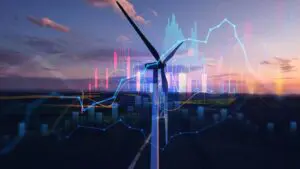 Australia Prime Minister Tony Abbott likes to boil down complex problems into simple soundbites. Take the “Axe the tax” and “Stop the Boats” slogans. The climate change and international refugee problems solved in three words. And who could forget his summary of the situation in the Middle East, which he reduced to a case of “goodies versus baddies.”
Australia Prime Minister Tony Abbott likes to boil down complex problems into simple soundbites. Take the “Axe the tax” and “Stop the Boats” slogans. The climate change and international refugee problems solved in three words. And who could forget his summary of the situation in the Middle East, which he reduced to a case of “goodies versus baddies.”
Now, it seems, Abbott has taken the “goodies versus baddies” meme to the energy sector. Coal is clearly a goodie, in Abbott’s mind: “It’s good for humanity,” he has said. “Coal is essential for the prosperity of the world.’ And, he told the G20 last week: “I am going to stand up for coal.”
Great soundbites. And it is true that for the developed economies and the great emerging ones, coal has been a necessary evil. But it is a “has been”. That is about the past, not the future.
The realisation that health and climate impacts are important, and worth acting on, and the emergence of competing and cleaner technologies has turned the paradigm on its head. Those sound-bites are no longer valid. If the energy sector is about goodies versus baddies, a team in green versus a team in black, Abbott is backing the wrong one.
“We don’t have to seek old pathways to prosperity,” India prime minister Narenda Modi said in Fiji this week, just days after telling an audience in Sydney that his country – still with nearly 400 million people without electricity – did not want energy that would “melt glaciers.”
To be sure, India will not suddenly quit coal. But Modi has said that the quickest and surest way to connect the 58 million households with no electricity, is through solar and storage. His energy minister said the country could halt imports of thermal coal within three years.
 China, too, is changing its tune, due to the catastrophic impact that coal is having on its quality of life, and on its economic output. This week, the Chinese government said its consumption of coal would peak before 2020. That means it is likely to halt imports well before then. Imports halved during the month of October.
China, too, is changing its tune, due to the catastrophic impact that coal is having on its quality of life, and on its economic output. This week, the Chinese government said its consumption of coal would peak before 2020. That means it is likely to halt imports well before then. Imports halved during the month of October.
There are numerous other emerging economies that are finding their energy options are not reliant on coal, such as Turkey, but China and India count because they are the two biggest markets for coal, and underpinned every investment decision made by the coal industry in the past decade.
Both India and China are finding clean energy is providing an increasingly viable alternative , and this is making investments in Australian coal mines so tenuous that the Queensland government may now use the proceeds of privatising the electricity generation industry to nationalise the coal mining and infrastructure sector, in a futile attempt to give it the necessary finance. The mines are not even majority Australian owned.
The challenge of alternative energy – the goodies versus the baddies – is extended to the liquid fuel market. As Mark Lewis, from French firm Kepler Chevreux noted recently, “renewables are already surprisingly competitive with marginal new oil projects”, and with further cost reductions expected in coming years, Big Oil’s new oil projects will be stranded – as early as 2025.
He pointed to the expected growth in electric vehicles. The IEA has trebled its estimates of how much oil might be displaced by EVs in coming decades, and if the improving economics of renewables versus oil spurs a faster take-up of EVs in China than even the IEA is assuming, this could threaten the viability of the marginal barrels beyond 2025.
“Higher long-term oil prices could thus create asset-stranding risk for new projects undertaken today at the higher end of the cost curve, a risk we think the majors should now be taking very seriously,” Lewis wrote.
“Indeed, we think the oil majors now need radically to re-think their business model and become energy majors.” That means becoming heavy investors in renewables as well.
As ARENA boss Ivor Frischknecht said in a function last week – solar is cheaper, greener and more reliable. What’s not to like about it?
So what explains Abbott’s unwavering support for coal? Various theories abound – a lack of knowledge, a lack of imagination, a lack of economic literacy, or just plain ideology. Some say it lies deeper than that, and it is bound by the power that the extraction of commodities and the provision of centralised power bestows on the providers and their political supporter. In other words, vested interests.
Hence the emergence of distributed generation – solar and storage – and the so-called “democratisation” of energy, is not just an affront to individual suppliers, but a whole industrial complex that has wielded unfettered political power for the last two generations.
Noah Smith, an assistant professor of finance at Stony Brook University, recently provided this fascinating insight into why the energy market really is a case of goodies verses baddies, a battle of good against evil, in a blog post on Bloomberg.
“The story of our species goes like this. For thousands of years, humanity’s energy budget was basically fixed — we got energy from our own bodies, from animals and from wood. All of those came from land — whoever had the land controlled the energy. Since technological progress was slow, the best way to get rich was to take someone else’s land. So for thousands of years, war was the normal state of affairs, and whoever was best at war — Roman and Chinese emperors, barbarian warlords or Mongol khans — was the richest. It was a brutal, zero-sum world.
“Then two things happened to turn the old zero-sum world on its head. Technological progress accelerated dramatically, and we discovered how to extract energy from fossil fuel. These two processes fed each other, and the result was an increase in human well-being like nothing the world had ever seen. Suddenly, great fortunes were made from inventing new things and organizing people for productive activity, rather than from seizing land from the neighbors. It became a positive-sum world, much more peaceful as well as much richer.
“Most of us would like that positive-sum world to continue. There’s just one problem — there is a very limited supply of fossil fuel energy on our planet. In the 2000s, those limits started making themselves apparent — many thought we were on the verge of peak oil, standing on the precipice of a new dark age. Human ingenuity battled back, and gave us shale gas and tight oil, which have sent energy prices back down –– but not down to where they were before the middle of the last decade. Fracking shale is expensive, and it’s going to get more so as time goes on. It’s a stopgap –– a bulwark against the onslaught of scarcity, but not a long-term solution.”
Meanwhile, prices have stayed high, feeding the coffers of autocratic regimes such as those of Vladimir Putin’s Russia, Saudi Arabia, Iran and Venezuela. Consider Putin. Here is a man whose power derives from the fact that his predecessors conquered a huge tract of land by military force, which later happened to have a lot of oil under it. Putin’s more recent predecessors managed to defend that oil-rich land, and used the oil wealth to build up one of the world’s largest militaries. The military defends the land, the land provides the wealth to pay for the military, and Putin and his friends skim a little off the top. As US Senator John McCain said, Russia is indeed a gas station, but it’s a gas station with ICBMs.
If we don’t find a better source of energy than oil and gas, Putin’s militarized gas station represents the future of our planet. We won’t run out of fossil fuels for at least a century, but high-tech extraction costs will rise and rise, giving windfalls to whoever sits on the land with the lowest extraction costs, whether it’s the rulers of Russia, Saudi Arabia or Iran. We won’t go all the way back to the zero-sum world, where land is the most important source of wealth, but we will slide back in that direction.
Against this grim future stand the forces of good — human ingenuity and smarts. If we can come up with new energy sources that are better than oil and gas, then we can get back on the positive-sum path. And if those new energy sources are things that don’t run out in a century or two, then the positive-sum world can last basically forever.
Smith says there are two potential energy sources that could let us escape the zero-sum world. The first is fusion energy, which has long been a pipe dream and could be decades away. The second is solar energy, which is here right now.
He notes the Deutsche Bank report that says that even if US government subsidies for solar power are slashed from the current 30 per cent to only 10 per cent, solar electricity will be cheaper than fossil-fuel electricity in 36 states by 2016.
“Plunging costs are being driven by new technology, by economies of scale and improvements in the solar-panel manufacturing process, and by drops in “balance of system” costs. Meanwhile, battery storage costs have been falling steadily as well, though at a frustratingly slow rate.
“So renewable energy is a moral crusade. If human ingenuity wins, we remain in a world where new ideas and productive effort are the main determinants of prosperity. If technology loses — if fusion doesn’t pan out, batteries never become viable, and solar costs stop falling or go back up — then more and more of the world’s wealth and power will flow into the hands of violent men who seize land with force. I know who I’m rooting for.”
And so do we.








